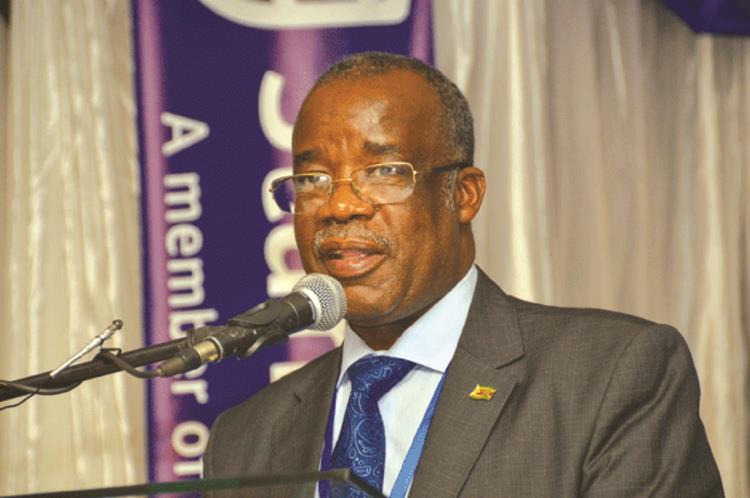Stop the rot in parastatals!

Lloyd Gumbo Mr Speaker, Sir
Sometimes one wonders if corruption in Government institutions will ever end. And whether corporate governance will ever work in Zimbabwe. How about institutions that are in place to fight corruption, are they there to fight graft or to exacerbate it? Do people get into public institutions to help in the country’s development or to line their pockets? These are serious questions, answers to which, have remained elusive.
Surely, the buck must stop somewhere!
Mr Speaker Sir, just recently we came to know about Mines and Mining Development permanent secretary Francis Gudyanga’s shenanigans at the Minerals Marketing Corporation of Zimbabwe (MMCZ).
He is alleged to have claimed more than $28 000 board sitting allowances, for meetings that never took place.
And, on the other hand, acting general manager Richard Chingodza and acting deputy general manager (finance and administration) Hannan Tongai Chitate are accused of swindling the parastatal of more than $625 000 after awarding themselves unapproved allowances.
Both offences are said to have started in 2013, only to come to light now.
Mr Speaker Sir, the question is how did this happen without being detected all these years?
Gudyanga, as the accounting officer of the ministry, did he not really know what was going on with officials at MMCZ?
Equally, where was the Public Accounts Committee when all this was happening?
During cross-examination in court recently in the case involving Chingodza and Chitate, Gudyanga was asked how many people sat on the MMCZ board during his tenure.
He replied, “At the time I was chairperson, I was the only one on the board, no other person” before being given the Companies Act to confirm what the board should consist of.
“According to the Act, the board should consist of the general manager, me, the corporation’s secretary and others,” he read.
The defence lawyer then asked him if he ever had any meetings with the acting general manager since his appointment and whether he ever chaired a full board meeting, to which the answer was negative.
The defence lawyer was not done, as he asked Gudyanga why he was paid board fees, to which he dropped a bombshell.
“It’s not just sitting, but decision-making. No, it was not sitting fees, but boarding fees because we did not sit as a board.
“The board is not all about sitting, but consultation and decision-making. It took most of my time,” said Gudyanga.
Mr Speaker Sir, why does it seem as if the Executive does not follow up on its decisions?
For instance, in 2014, Finance Minister Patrick Chinamasa announced through a ministerial statement that Cabinet had resolved that no permanent secretary would sit on parastatal boards.
Chinamasa announced the measures in his capacity as chairperson of the Cabinet Committee on State Enterprises and Parastatals.
This position was meant to “bring corporate sanity” in the governance of parastatals, State enterprises and local authorities.
The other measure Chinamasa announced was that the Committee on State Enterprises and Parastatals Development would oversee the forensic audit of all parastatals and local authorities “to give them a clean bill of health”.
But fast forward to 2017, Gudyanga remained a lone board member whose decisions, if there were any, accrued thousands to him.
While on the other hand, people he was supposed to be supervising were busy awarding themselves hundreds of thousands of dollars at a time most parastatals have contributed little or nothing to the fiscus.
Mr Speaker Sir, good corporate governance will not happen on goodwill but regulation and strict supervision to ensure officials do not stray.
We must ensure that officials in ministries and parastatals do not milk the same organisations.
One would assume the office has enough personnel to detect if there are any breaches of good corporate governance standards.
They also can access any documentation that they need in their supervision of these parastatals.
The office should adopt a hands-on approach in monitoring these parastatals because failure to do so will see these institutions continue to struggle while those who lead them are living large.
It is equally shocking that all these things are happening when we have a Parliamentary Public Accounts Committee that must be able to pick out such wrongdoings.
Should the committee just wait for reports from the Auditor-General without also taking the initiative to monitor the status of corporate governance in parastatals?
Mr Speaker Sir, good corporate governance in parastatals will remain elusive as long as those who are charged with supervising and monitoring these institutions are sleeping on the job.
The OPC and the Public Accounts Committee must take a leading role in monitoring and supervising parastatals to ensure that they comply with good corporate governance if these State-owned companies are to live up to their mandates.
It is a fact that most parastatals are struggling and the generality of employees go without pay but you see heads of those parastatals driving top of the range vehicles.
It is as if the little that the company makes is for top management to enjoy without anything accruing to the Consolidated Revenue Fund.
Mr Speaker Sir, it is high time the executive adopts zero tolerance to poor governance and endeavour to see these parastatals contribute to the fiscus instead of being a drain on the same.
Feedback: [email protected]









Comments